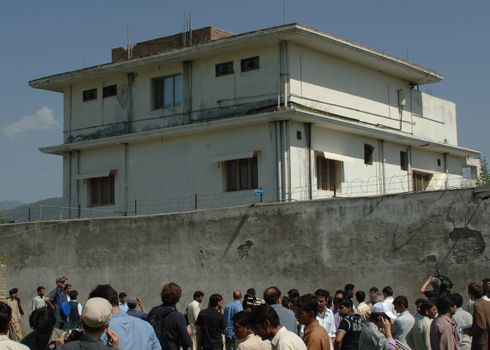House progressives are trying to draw attention to language Republicans have included in an annual must-pass defense bill, which they say will dramatically expand Presidential power in the war on terrorism. The pushback comes just over a week after U.S. forces killed al Qaeda leader Osama bin Laden, and reignites one of the most controversial disputes the country’s faced over the past decade. At stake is the question of whether Congress will allow the war on terrorism to continue indefinitely, or let it slowly dissipate as the years since September 11, 2001 pass.
The origin of the language in the defense bill dates back to March, when President Obama signed an executive order — derided by some of his closest allies — that effectively formalized an indefinite detention system at Guantanamo.
In response, House Armed Services Committee Chairman Buck McKeon (R-CA) and his colleagues unveiled legislation intended to codify the intent of that executive order, and update the 2001 Authorization for the Use of Military Force — the legal underpinning off the war on terrorism.
In a Tuesday letter to McKeon, obtained by TPM, Rep. John Conyers (D-MI) and 32 other, mostly progressive, Democrats questioned the AUMF expansion, and pressed the GOP to leave it out of the defense authorization bill so it can be considered separately. For now it looks like that won’t happen.
“Chairman McKeon welcomes the feedback from his fellow members,” says John Noonan, a spokesman for McKeon’s committee, in a statement to TPM.
Noonan says that the new language won’t amplify the already-broad powers Congress vested in the executive branch in the original AUMF. “To clarify, [the] AUMF simply affirms into law the President’s legal authority to effectively prosecute the fight against terrorists. It does not represent an expansion of the war, nor does it grant the President any superfluous powers. This is a pragmatic step that acknowledges that the nature of our enemy has changed in the 10 years since September 11, and allows our Commander-in-Chief to combat that enemy in a manner consistent with our Constitution and our values.”
With Osama bin Laden dead, McKeon et al want to update the AUMF, so that it doesn’t phase itself out as the connection between existing terrorist groups and the September 11 attacks themselves becomes more and more tenuous over time. That’s exactly what some Democrats hope to avoid.
The new language eschews references to September 11, and instead centers the authorization on “armed conflict with al-Qaeda, the Taliban and associated forces,” though “associated forces” is not defined. It replaces the authority to target “organizations” and “persons” domestically with the power to target “all entities that continue to pose a threat to the United States and its citizens, both domestically and abroad.”
Democrats and advocates highlight these seemingly subtle changes and argue that they will allow the President to initiate military action even more broadly, and without the consent of Congress — effectively perpetuating the war indefinitely.
“Such authority must not be ceded to the President without careful deliberation from Congress,” the Democrats write. Their immediate goal is to have these measures considered separately from the crucial defense bill, so that they receive individual scrutiny, and don’t get dragged along for the ride.
“Whatever one thinks of these various proposals in the Detainee Security Act, it is clear that they will have serious consequences and should be examined extensively,” the letter reads. “We therefore request that you use your chairmanship to immediately call hearings…so that the American people have an opportunity to consider the serious impacts that this legislation could have on our national security.”
The issue has been drowned out by a spate of international and domestic news, and by the fact that there’s generally broad bipartisan support in Congress for war on terror efforts. A key question is whether the Obama administration will take the opportunity to enhance its executive authority — and thus side with McKeon and his allies — or balk over provisions that would keep Guantanamo open indefinitely.
“It reestablishes military assessments on the continued danger from detainees at Gitmo, outside of the military commissions that try suspected war criminals,” writes Spencer Ackerman at Wired.
It restricts the resettlement of detainees into the U.S., even if that panel says they pose no threat, and makes it harder to transfer detainees to foreign countries. And it prevents the administration from building or upgrading any domestic detention facility to house Guantanamo detainees — a provision Obama bridled at in last year’s bill, but ultimately signed into law.










